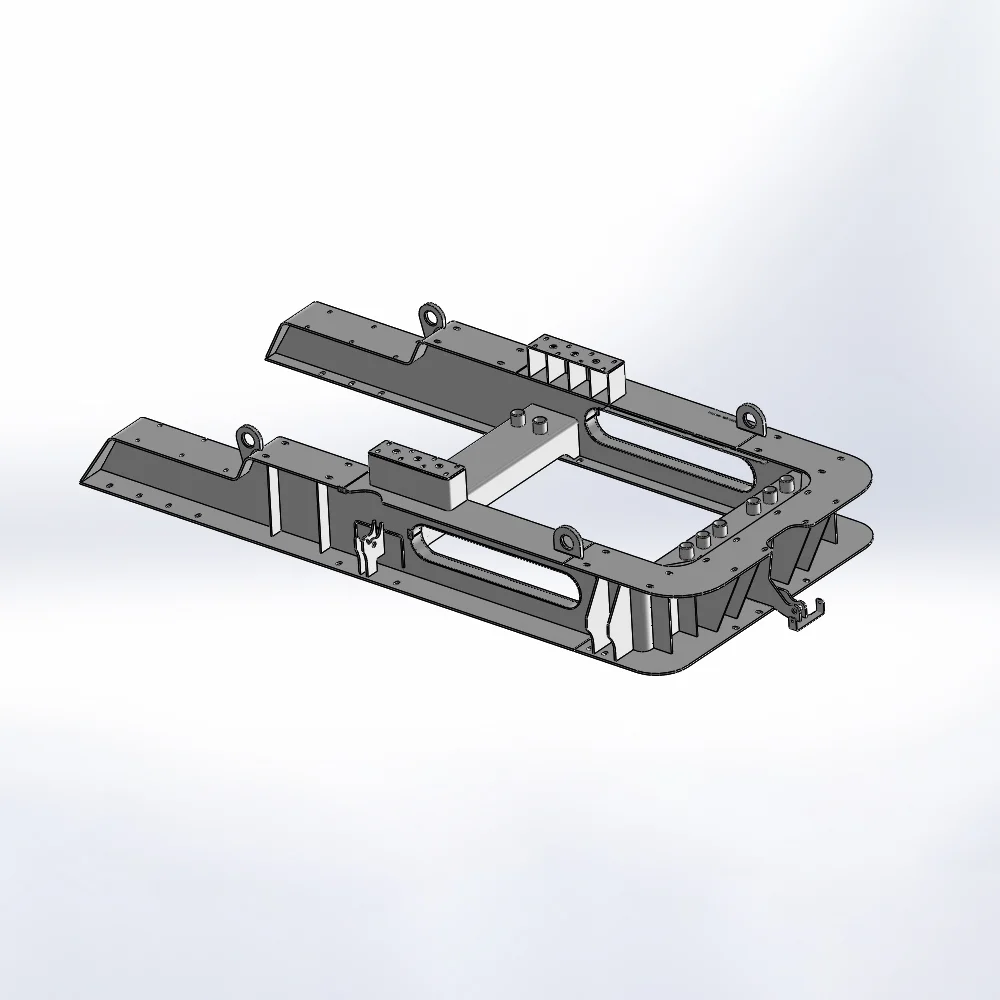Frame welding plays a vital role in many industrial sectors such as mining, construction machinery, transportation, and energy. Selecting a suitable frame welding service ensures the mechanical strength, dimensional accuracy, and long-term reliability of welded structures. For businesses pursuing durability and performance, finding the right supplier is not just a technical choice—it’s a strategic investment. Manufacturers like Hengli stand out by offering customized frame welding solutions with full-process integration, from raw material processing to assembly and painting.

1. Assess Your Application Needs
Before making a decision, define the purpose and requirements of your project:
-
What base materials are involved—carbon steel, stainless steel, or alloy?
-
Is it a large welded frame or a precision part?
-
What kind of welding process is required—MIG, TIG, or robotic arc welding?
Choosing a welding provider that can meet these needs precisely will reduce rework and improve delivery efficiency. Hengli, for example, supports heavy-duty welded structures for excavators and mining equipment, while also offering flexibility for mid-size assemblies.
2. Evaluate the Provider’s Technical Capabilities
A capable welding partner should have:
-
Advanced production equipment (e.g., CNC gantry welding, robotic arms)
-
Skilled certified welders
-
Process integration covering bending, machining, sandblasting, and coating
Hengli's workshops are equipped with automated and semi-automated systems, ensuring tight process control and consistent quality for both standard and custom projects.
3. Examine Industry Experience and Projects
Check the supplier’s track record across different industries. A provider with experience in structural welding for mining machines, for example, will better understand heavy-load requirements. Look for:
-
Past projects with reputable clients
-
Familiarity with your industry standards
-
Certifications such as ISO, AWS, or EN1090
Hengli’s welding solutions have been widely applied in construction and port machinery, showing its reliability in demanding industrial environments.
4. Confirm Quality Control Systems
Quality assurance is a key differentiator in the welding industry. Ensure the supplier can:
-
Perform NDT (non-destructive testing) such as ultrasonic or magnetic particle inspection
-
Provide welding records and inspection reports
-
Maintain documentation and process traceability
Hengli has implemented strict quality control systems for each production step, including incoming material inspection, in-process monitoring, and final dimensional checks.
5. Evaluate Lead Time and Production Capacity
Timely delivery is critical for industrial projects. Assess whether the welding service can:
-
Scale production to meet urgent deadlines
-
Manage multiple batch orders
-
Adapt to design changes efficiently
With multiple welding workshops and lean manufacturing systems, Hengli ensures stable delivery timelines even for complex assemblies.
6. Consider the Total Value Offered
Don’t base your decision solely on price. A comprehensive welding solution includes:
-
Design support and technical consultation
-
Surface treatment and final assembly options
-
Post-sale follow-up and troubleshooting assistance
Hengli provides end-to-end support, helping clients save time and reduce coordination costs between multiple suppliers.
Final Thoughts
Choosing the right frame welding service means finding a partner who can meet your technical needs, ensure quality, and support your long-term growth. Hengli has earned trust from global clients through its advanced welding capabilities, experienced team, and commitment to delivering durable and efficient solutions. If you are seeking a dependable partner for industrial frame welding, Hengli is ready to support your next project with precision and professionalism.
www.hlmetal.net
HENGLI
About Author
You may also like
-
How to Select the Right Vacuum Suction Unit for Chemical Applications in Industrial Projects
-
How to Choose an ISO Certified Automotive Starter Manufacturer for Reliable Bulk Supply
-
How to Select the Right Vacuum Suction Unit for Chemical Applications in Industrial Projects
-
What Buyers Should Know Before Ordering Custom FR4 Fiberglass Boards
-
How 35kV Epoxy Resin Transformers Help Buyers Achieve Reliable and Safe Power Distribution
